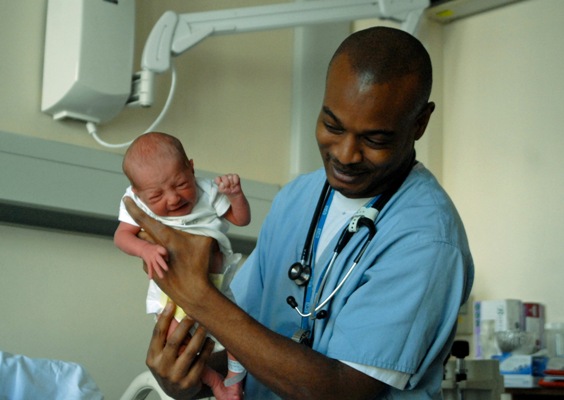 Subscribers Only
People
Subscribers Only
People 
I write this article as the local Assembly Member for Swansea East, which includes Morriston Hospital, and as both a former Non-Executive Director of Swansea NHS Trust and former Welsh Local Government Association (WLGA) spokesperson on Health and Social Care.
I intend to look at the Swansea Bay region where my definition of the Swansea Bay Region is an inner core consisting of Neath, Port Talbot, Llanelli, the Swansea and Amman Valley and an outer area of Western Carmarthenshire and Pembrokeshire. I am well aware that this is covered by two health boards (ABMU & Hywel Dda) but I believe that in terms of people’s health, certainly for the inner area then this is the health region.
We all want two main things from the NHS in Wales. The first is the best possible medical intervention and the second is a service as local as possible. The expectation that in every area of medicine that the best possible intervention would be local is both recent and different here to some other parts of Wales.
When I grew up in Swansea in the 1960s and 1970s, there was an acceptance that a referral would take place to Great Ormond Street Hospital in London for children with certain medical conditions or one of the London-based teaching hospitals for older patients with serious health needs. Many people requested such referrals and even today I get constituents wishing for a referral to an English teaching hospital when they require highly specialised treatment.
In 2011-2012 financial period, the Betsi Cadwalladr Health Board, which covers North Wales, spent £53.3million on English hospitals mainly in Liverpool and Manchester, whilst Powys Teaching Health Board spent £45.8million on English hospitals compared with just £3.9million spent by our local AMBU Health Board which shows that in other parts of Wales there is far larger number of patients who have treatment outside Wales.
I believe the over riding importance in hospital provisions is that the service is safe and staffed by suitably qualified and experienced doctors. I, as both a local politician and prospective patient, believe that following a hospital stay the best possible outcome is of prime importance. Nothing is more important than the safety of service being provided and every patient has the right to the best possible treatment and I do not believe anyone should be expected to accept anything less.
The worst cases of clinical negligence by the NHS in Wales, some of which resulted in multi-million-pound compensation payments, have been revealed and well publicised by both local and national newspapers. Life-long injuries caused by mistakes at birth – such as significant brain damage or cerebral palsy – were the most common claim alongside surgical errors, misdiagnosis and poor treatment. Examples of clinical mistakes made include a patient having the wrong kidney removed and a widow who died on the operating table when a surgeon tried to remove a liver instead of a kidney in a fatal mix-up
For the NHS in Wales, to be able to provide the best possible service there is a need to recruit doctors at every level, especially consultants; there is also a need for health authorities and boards to produce robust recruitment plans and succession plans to ensure continuity of high quality services. The perception of the current Westminster Coalition Government’s policy on immigration is making it more difficult to recruit doctors from outside the European Union. There is also a need to increase the number of doctors being trained which whilst not being a short term solution, is the only way to deal with the problem of doctor shortages in the long term.
I also accept that every hospital cannot provide every service and more importantly that outreach facilities and treatment of patients in their own homes often leads to better outcomes than hospitalisation. The question is do we want every hospital to try and provide every service or are we prepared to have centres of excellence that we will travel to in order to receive specialist medical services? When the chance of survival depends on the hospital you attend, is this form of health roulette acceptable? If there is a need to get patients to centres of excellence then an enhanced air ambulance facility is needed to ensure that they get there quickly.
There is inevitability about change; this has existed ever since the NHS was first created by Aneurin Bevan in 1948. There was a big change in the 1980s and 1990s with care in the community replacing long term hospitalisation and we no longer have TB sanatoriums. There has also been a greater specialisation and sub specialisations by hospital consultants in recent years.
I am also well aware that it is substantially harder for most of us to see the benefits in service improvement by centralisation than it is to see the drawback of increased travel time. Every time we travel to the hospital we see the drawback but we can’t tell if we would have had the same outcome at a different hospital.
If there is a need for medical reasons to move patients from their nearest hospital then adequate public transport is imperative. Both the Welsh Government and Local Authorities have a duty to work with local bus companies to ensure that there is adequate public transport to the hospitals.
We can either progress to a Health Service fit for the second decade of the 21st century with centres of excellence and the need to travel to them or we can try and keep the NHS as it is now.
Mike Hedges AM is Assembly Member for Swansea East



So we in north Carnarthenshire are not included, even in the outer area? Kinda fits with the general hospital setting sail to the Pembrokeshire border…..
Come on, please include us in north Carms….